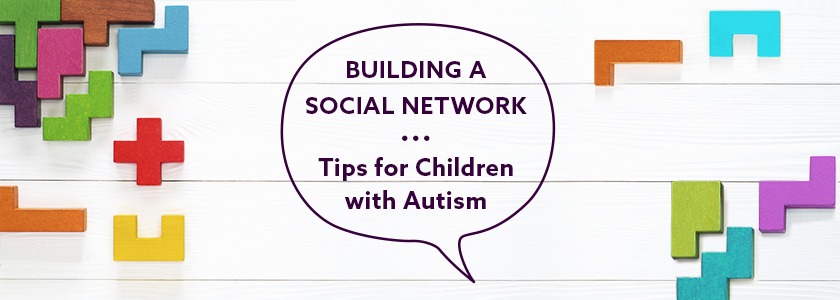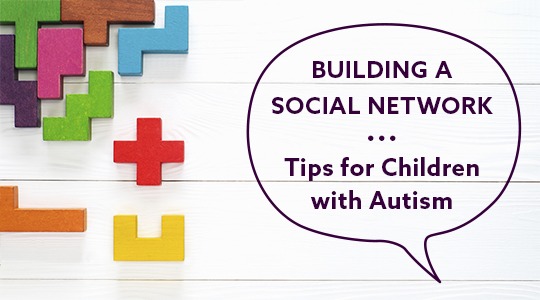Social skills are an important part of all of our lives. Good social skills give us a sense of belonging, of being part of a community.
For kids, good social skills help in knowing how to act around others, making friends, learning and developing hobbies and interests.
Many children with autism can experience a sense of social isolation. According to the Interactive Autism Network, a lack of intuitive social skills can be a hallmark of someone with an Autism Spectrum Disorder (ASD). It is sometimes described as “social blindness”: the difficulty to process social cues, interpret people’s intentions and choose responses.

Social skills training for children with ASD can be effective in growing social abilities and a network of relationships. Below are some tips for fostering social skills in children with ASD.
Role-Playing
Role-playing can help children learn skills for interacting with others. For younger children, practising playing games with a friend – where a teacher or caregiver takes the role of a friend and suggests appropriate reactions and ideas – can translate into more confidence in real-life scenarios.
It can also help with coping mechanisms for stressful situations, such as when a toy is broken, or a meal is served that the child does not like.
Social Stories
‘Social Stories’ have been an aid for children with autism since 1991, when they were conceptualised by paediatrician Dr Carol Gray. They are brief, personal stories written for children to help them understand social situations.
Examples could be writing a story about scenarios children deal with every day, such as lunchtimes at school, or attending a birthday party. They can also be written in response to a negative encounter. The story can describe what happened and then construct future positive responses to a situation. They can be written or visual – Autism Parenting Magazine has a great guide to constructing effective Social Stories.
Get Tech
Computer-based programs and video tutorials are often of great assistance in teaching social and emotional skills to children with ASD.
Recently, there’s also been a lot of success with Virtual Reality (VR) training programs. A test program at the University of Texas found that dealing with social situations in Virtual Reality gave children with ASD a safe space to practise.
Social Clubs
It’s important to provide children with ASD with regular opportunities for interaction with others.
Autism Spectrum Australia (ASPECT) run regular ‘Social Clubs’ for children and teenagers aged 8 – 18 years of age. Participants are able to interact in a structured but relaxed and fun recreational environment. The social clubs run throughout Metropolitan Sydney and regional NSW, with activities after school and in the school holidays.
NDIS Support
Finally, don’t forget that there are Supports available through the Australian Government. The National Disability Insurance Scheme (NDIS) provides support for both children and adults with ASD. This may be in the form of therapeutic or behavioural support, personalised care or assistance in coordinating Community Supports. Find out more here.
Socialising with ASD can require strategic skills-building. However, with the right Supports, it’s possible to build healthy social skills and a growing community.








